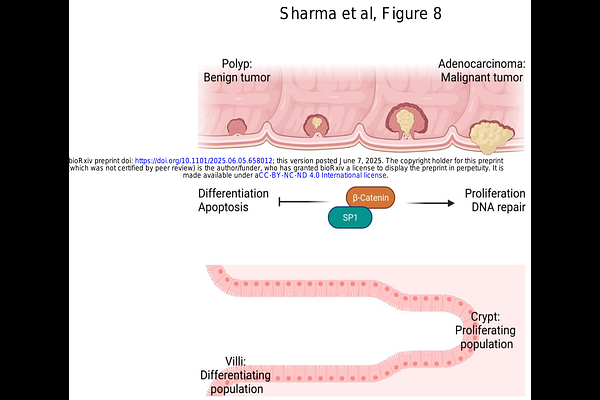SP1 amplifies the effects of cellular proliferation via the Wnt/β-catenin pathway in colon development and cancer

SP1 amplifies the effects of cellular proliferation via the Wnt/β-catenin pathway in colon development and cancer
Galande, S.; Sharma, A.; Dsliva, G. J.; Pradhan, S. J.; Mishra, S.; Santhakumar, K.
AbstractWnt/{beta}-catenin signaling is a highly conserved pathway across multicellular organisms, playing a pivotal role in various cellular processes essential for development and tissue homeostasis. Aberrant activation of this pathway is a major driver of colorectal cancer (CRC). The transcription factor SP1 has been identified as a key component of the Wnt/{beta}-catenin signaling pathway through its physical interaction with {beta}-catenin in colorectal cancer. However, the distinct roles played by this complex during development versus in disease contexts remain poorly understood. In this study, we conducted molecular and functional analyses by individually depleting SP1 and {beta}-catenin. Interestingly, genes co-regulated by the SP1:{beta}-catenin complex were significantly enriched for functions related to the cell cycle and DNA replication, key processes required for sustaining proliferation, whose disruption can promote tumorigenesis. These findings were further supported by data from mouse tumor models and clinical datasets. Additionally, cross-species analysis using zebrafish larvae revealed a synergistic interaction between SP1 and {beta}-catenin, leading to excessive cell proliferation and developmental defects. Collectively, our results suggest a conserved role for the SP1:{beta}-catenin complex in regulating cell proliferation during development and maintaining cellular homeostasis, processes critical for preventing cancer progression.